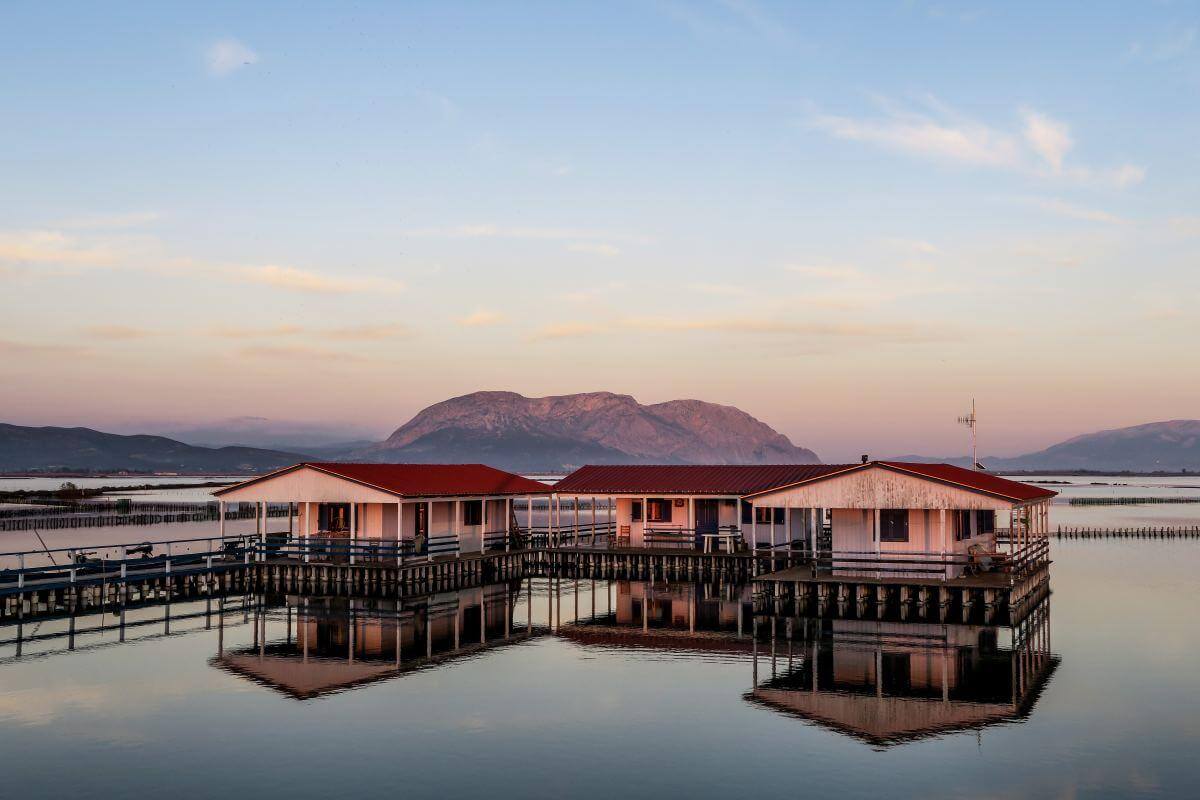奥巴马总统在新奥尔良港就经济和出口发表演讲
THE PRESIDENT: Hello, Big Easy! (Applause.) Everybody, give it up for Nancy for that great introduction. (Applause.) It is good to be back in New Orleans. This is what passes for winter here in New Orleans, huh? (Laughter.) Folks got all their coats on and all that. Come on. You need to go to Chicago to know what it’s like to be cold.
It is great to be here. It is especially happy for my staff. They love coming to New Orleans. But we did schedule the event early because Ifigure there’s a limit to how much trouble they could get into. (Laughter.) They can’t get over to Bourbon Street fast enough if we did a daytimeevent. And I know that there areprobably a couple of my staff that are LSU fans. I wouldn’t mind staying for the game tomorrownight. I know we’ve got the presidenthere -- I just saw him a minute ago and I wished him all the best.
I also want to acknowledge acouple of other people who are here. You’vegot your Governor -- Bobby Jindal is here. (Applause.) We’ve got theSecretary of Transportation Anthony Foxx, who is here. (Applause.) We have Cedric Richmond, your outstanding Congressman. (Applause.) Cedric then brought down a whole bunch of his colleagues from theCongressional Black Caucus for some important work that they’re doing -- notthat they’re going to enjoy themselves at all while they’re here. (Laughter.) But we are thrilled to see them all here.
You have one of the best mayorsin the country in Mitch Landrieu. (Applause.) And I just flew downwith your Senator, who, by coincidence, has the same name -- Mary Landrieu. (Applause.) She’s traveling around the state today and doing unbelievable work on behalfof the people of Louisiana. And I justwant to say nobody is a tougher advocate on behalf of the working people ofLouisiana than Mary Landrieu. So we’revery, very proud of the work that she does. (Applause.)
Finally, I want to thank Mr. GaryLaGrange, Keith Palmisano, and Chris Hammond. They showed me around the port. (Applause.) And this is one ofthe -- by the way, anybody who’s got a seat, feel free. I noticed that a few folks are standingup. If you don’t have a seat then keepon standing. I don’t want you hurtingyourself.
This is one of the busiest portcomplexes in the entire world. You movemillions of tons of steel and chemicals and fuel and food every singleyear. I just found out you also handle alot of the country’s coffee, which means you’re responsible for keeping theWhite House awake at all times. (Applause.) Got some coffee folkshere.
And, in so many ways, this portis representative of what ports all around the country do: They help to keep our economy going -- movingproducts, moving people, making sure that businesses are working. You’ve got corn and wheat that’s coming downfrom my home state of Illinois down the river, ending up here, and then goingall around the world. And it’s part ofthe reason why we’ve been able to increase exports so rapidly, is because we’vegot some of the best natural resources and waterways and facilities in theworld.
Now, growing our economy,creating new jobs, helping middle-class families regain a sense of stabilityand security so they can find good jobs and make sure that their kids are doingeven better than they did -- that’s always been what America is about, but fortoo many people, that sense that you can make it here if you try, that sensehas been slipping away. And my drivingfocus has been to restore that sense of security, and it should be Washington’sfocus, regardless of party. That’s whateverybody in Washington should be thinking about every day.
So today, I want to just offer acouple of ideas about what we could do right now together that would help oureconomy -- right now. Now, the good newsis, over the past 44 months our businesses have created 7.8 million newjobs. Since I took office, we’ve cut thedeficits in half. (Applause.) That’s right. By the way, you wouldn’t know this sometimes listening to folks on TV,but the deficits are going down, they’re not going up. They’ve been cut in half. (Applause.) And they keep on going down.
Over the past three years, healthcare costs have risen at the slowest pace on record. Exports are up. The housing market is up. The American auto industry is roaring back. So we’ve got a lot of good things to buildon, but we’ve got a lot more work to do. And what we should start doing, the first thing we should do is stopdoing things that undermine our businesses and our economy over the past fewyears -- this constant cycle of manufactured crises and self-inflicted woundsthat have been coming out of Washington.
For example, we learned yesterdaythat over the summer, our economy grew at its fastest pace in a year. That’s the good news. The bad news is that the very day that theeconomic quarter ended, some folks in Washington decided to shut down thegovernment and threatened to default on America’s obligations for the firsttime in more than 200 years. And it’slike the gears of our economy, every time they are just about to take off,suddenly somebody taps the brakes and says, “Not so fast.”
AUDIENCE MEMBER: Tell it! (Laughter.)
THE PRESIDENT: Now, our businesses are resilient. We’ve got great workers. And so, as a consequence, we added about200,000 new jobs last month. But there’sno question that the shutdown harmed our jobs market. The unemployment rate still ticked up. And we don’t yet know all the data for thisfinal quarter of the year, but it could be down because of what happened inWashington. Now, that makes nosense. These self-inflicted wounds don’thave to happen. They should not happenagain.
We should not be injuringourselves every few months -- we should be investing in ourselves. We should be building, not tearing thingsdown. Rather than refighting the sameold battles again and again and again, we should be fighting to make sureeverybody who works hard in America and hard right here in New Orleans, thatthey have a chance to get ahead. That’swhat we should be focused on. (Applause.)
Which brings me to one of thereasons I’m here at this port. One ofthe things we should be focused on is helping more businesses sell moreproducts to the rest of the world. Andthe only way those products get out is through facilities like this. Right now, exports are one of the brightestspots in our economy. Thanks in part tonew trade deals that we signed with countries like Panama and Colombia andSouth Korea, we now export more goods and services than ever before. And that means jobs right here in the UnitedStates of America.
Last year, every $1 billion inexports supports nearly 5,000 jobs, including jobs right here at this port. So we’re working on new trade deals that willmean more jobs for our workers, and more business for ports like this one.
And, by the way, when I travelaround the world, I’m out there selling. I’ll go anywhere in the world to make sure that those products stampedwith those words, “Made in America,” that we can open up those markets and sellthem anywhere. (Applause.)
So helping American businessesgrow; creating more jobs -- these are not Democratic or Republicanpriorities. They are priorities thateverybody, regardless of party, should be able to get behind. And that’s why, in addition to working withCongress to grow our exports, I’ve put forward additional ideas where I believeDemocrats and Republicans can join together to make progress right now.
Number one, Congress needs topass a farm bill that helps rural communities grow and protects vulnerableAmericans. For decades, Congress found away to compromise and pass farm bills without fuss. For some reason, now Congress can’t even getthat done. Now, this is not somethingthat just benefits farmers. Ports likethis one depend on all the products coming down the Mississippi. So let’s do the right thing, pass a farmbill. We can start selling moreproducts. That’s more business for thisport. And that means more jobs righthere. (Applause.)
Number two, we should fix ourbroken immigration system. (Applause.) This would be goodfor our national security, but it would also be good for our economic security. Over the next two decades, it would grow oureconomy by $1.4 trillion. It wouldshrink our deficits by nearly a trillion dollars. This should not be a partisan issue. President Bush proposed the broad outlines ofcommon-sense immigration reform almost a decade ago. When I was in the Senate, I joined 23 of myRepublican colleagues to back those reforms. This year, the Senate has already passed a bill with broad bipartisansupport.
So all we’re doing now is waitingfor the House to act. I don’t know whatthe holdup is. But if there’s a goodreason not to do it, I haven’t heard it. There’s no reason both parties can’t come together and get this donethis year. Get it done this year. (Applause.)
Number three, Democrats andRepublicans should work together on a responsible budget that sets America on astronger course for the future. Weshouldn’t get caught up in the same old fights. And we shouldn’t just cut things just for the sake of cuttingthings. Remember, I want to remind you-- what’s happening in the deficits? They’re going down. They’reshrinking. They’re falling faster thanthey have in 60 years.
So what we have to do now is dowhat America has always done: Make somewise investments in our people and in our country that will help us grow overthe long term. We should close wastefultax loopholes that don’t help our jobs, don’t grow our economy, and then investthat money in things that actually do create jobs and grow our economy. And one of those things is building new roadsand bridges and schools and ports. Thatcreates jobs. (Applause.) It puts people to work during theconstruction phase. And then it createsan infrastructure for our economy to succeed moving forward.
Educating our kids, training ourworkers so they’re prepared for the global economy -- that helps us grow. We should be investing in that. And Mayor Landrieu has been doing a great jobin improving education here in New Orleans. (Applause.)
Investing in science and research and technology -- that keeps ourbusinesses and our military at our cutting edge. That’s the kind of investment we should bemaking.
I mean, think about ourinfrastructure. In today’s globaleconomy, businesses are going to take root and grow wherever there’s thefastest, most reliable transportation and communications networks -- they cango anywhere. So China is investing a lotin infrastructure. Europe is investing awhole lot in infrastructure. And Brazilis investing a whole lot in infrastructure. What are we doing?
We’re doing some good thingslocally here. The state and city aretrying to do some work, but nationally we’re falling behind. We’re relying on old stuff. I don’t think we should have just oldstuff. We should have some new stuffthat is going to help us grow and keep pace with global competition.
Rebuilding our transportation andcommunications networks is one of the fastest ways to create good jobs. And consider that just a couple of years fromnow, we’re going to have new supertankers that are going to start comingthrough the Panama Canal, and these tankers can hold three times as much cargoas today’s. If a port can’t handle thosesupertankers, they’ll go load and unload cargo somewhere else. So there’s work that we can start doing interms of dredging and making the passageways deeper, which means thesupertankers can have more stuff on them, which means they can unload and loadmore stuff, which makes this port more competitive.
So why wouldn’t we put people towork upgrading them? (Applause.) Why wouldn’t we do that? It’s not just our ports either. One in nine of our bridges is ratedstructurally deficient. More than 40percent of our major highways are congested; so is our airspace. Everybody who’s sitting on a tarmac wonderingwhy it is that you’re not taking off, and getting aggravated when you go flysomeplace, part of the reason is we’ve got this antiquated air traffic controlsystem. We need the next generation airtraffic control system. It would reducetime travel; it would reduce delays. Itreduces fuel costs for airlines. Itreduces pollution in the sky. We knowhow to do it, we just haven’t done it.
That shouldn’t be a Democratic ora Republican issue. That’s just smart togo ahead and do it. Something thatpeople across the political spectrum shouldbe able to agree on. Now, here’s thething: All these opportunities andchallenges, they’re not going to magically fix themselves. We’ve got to do it. And anybody who says we can’t afford to payfor these things needs to realize we’re already paying for them.
I’ll give you an example. A lot of trucking companies now reroute theirshipments to avoid traffic and unsafe bridges. So they’re going longer than they need to; that costs them money. So you’re paying for it. Those costs then get passed on toconsumers. Or it means companies aren’tmaking as much of a profit and maybe they’ve got fewer employees. So directly or indirectly, we’re paying forit. And the longer we delay, the more we’llpay.
But the sooner we take care ofbusiness, the better. And I know that ifthere’s one thing that members of Congress from both parties want, it’s smartinfrastructure projects that create good jobs in their districts.
That’s why, last year, I took thestep without Congress to speed up the permitting process for big infrastructureprojects like upgrading our ports. Justcut through the red tape. Get it donefaster. This year, rebuilding ourinfrastructure could be part of a bipartisan budget deal. A couple months ago, I put forward an idea totry to break through some of the old arguments -- a grand bargain formiddle-class jobs. And what I said was,we’ll simplify our corporate tax code, close some wasteful tax loopholes, endincentives to ship jobs overseas, lower tax rates for businesses that createjobs here in the United States, and use some of the money we save by switchingto a smarter tax system to create good construction jobs building the thingsthat our businesses need right here in America. It’s a pretty sensible deal. (Applause.)
So if we took that step, we couldmodernize our air traffic control system to keep planes running on time;modernize our power grids and pipelines so they survive storms; modernize ourschools to prepare our kids for jobs of the future; modernize our ports so theycan accommodate the new ships.
The point is, rebuilding ourinfrastructure or educating our kids, funding basic research -- they are notpartisan issues, they’re American issues. There used to be a broad consensus that these things were important toour economy. And we’ve got to get backto that mindset. We’ve got to moveforward on these things together. Itdoesn’t mean that there aren’t going to be disagreements on a whole bunch ofstuff, but let’s work on the things we agree on.
Now, I’m going to make one lastpoint, one area where we haven’t made much bipartisan progress -- at least notas much as I’d like -- is fixing our broken health care system. (Applause.)
And I took up this cause knowingit was hard -- there was a reason why no other President had done it -- to makesure every American has access to quality, affordable health care, and to makesure that no American ever again has to fear one illness is going to bankruptthem. (Applause.)
And the work we’ve already donehas resulted in, over the past three years, health care costs rising at theslowest pace on record. Health carecosts for businesses are growing about one-third of the rate they were a decadeago, and we want those trends to continue.
Now, we’ve had this problem withthe website. I’m not happy aboutthat. But we’re working overtime to makesure that it gets fixed, because right now we’ve put in place a system, amarketplace, where people can get affordable health care plans. I promise you nobody has been more frustrated. I want to go in and fix it myself, but I don’twrite code, so -- (laughter).
But to every American with apreexisting condition who’s been waiting for the day they could be covered justlike everybody else, for folks who couldn’t afford to buy their own insurancebecause they don’t get it on the job, we’re going to fix the website. Because the insurance plans are there. They are good, and millions of Americans arealready finding that they’ll gain better coverage for less cost, and it’s theright thing to do. (Applause.)
Now, I know that’s -- I knowhealth care is controversial, so there’s only going to be so much support weget on that on a bipartisan basis -- until it’s working really well, and thenthey’re going to stop calling it Obamacare. (Laughter and applause.) They’regoing to call it something else.
One thing, though, I was talkingto your mayor and your governor about, though, is a separate issue, which isone of the things that the Affordable Care Act does is allow states to expandMedicaid to cover more of their citizens. (Applause.)
And here in Louisiana, that wouldbenefit about 265,000 people. Andalready you’ve seen states -- Arkansas has covered -- taken this up, and they’recovering almost 14 percent of their uninsured. Republican governors in states like Ohio and Nevada, Arizona, they’redoing it, too. Oregon has alreadyreduced the number of uninsured by about 10 percent. And some of these folks opposed Obamacare,but they did support helping their citizens who can’t get coverage.
So we want to work with everybody-- mayor, governor, insurance -- whoever it is that wants to work with us herein Louisiana to make sure that even if you don’t support the overall plan, let’sat least go ahead and make sure that the folks who don’t have health insuranceright now can get it through an expanded Medicaid. Let’s make sure we do that. (Applause.) It’s the right thing to do.
And one of the reasons to do itis -- I’ve said this before; sometimes people don’t fully appreciate it -- wealready pay for the health care of people who don’t have health insurance, wejust pay for the most expensive version, which is when they go to the emergencyroom. Because what happens is, thehospitals have to take sick folk. They’renot just going to leave them on the streets. But people who are sick, they wait until the very last minute. It’s much more expensive to treat them. Hospitals have to figure out how to get theirmoney back, which means they jack up costs for everybody who does have healthinsurance by about $1,000 per family.
So, as a consequence, whathappens is you’re already paying a hidden tax for a broken health caresystem. Community hospitals struggle tocare for the uninsured who can’t pay their bills when they get sick. So it’s the right thing to do for the healthof our economies as a whole. It is apractical, pragmatic reason to do it. Ithas nothing to do with politics or ideology. And the more states that are working together, Democrats andRepublicans, the better off we’re going to be.
So the bottom line is, NewOrleans, we can work together to do these things, because we’ve done thembefore. We did not become the greatestnation on Earth just by chance, just by accident. We had some advantages -- really nice realestate here in the United States. Butwhat we also had were people who despite their differences -- and we come fromeverywhere and look different and have different traditions -- we understandthat this country works best when we’re working together. And we decided to do what was necessary forour businesses and our families to succeed. And if we did it in the past, we can do it again.
So let’s make it easier for morebusinesses to expand and grow and sell more goods made in America to the restof the world. Let’s make sure we’ve gotthe best ports and roads and bridges and schools. Let’s make sure our young people are gettinga great education. Let’s give everybodya chance to get ahead, not just a few at the top, but everybody -- (applause)-- because if we do that, if we help our businesses grow and our communitiesthrive and our children reach a little higher, then the economy is going togrow faster.
We’ll rebuild our middle classstronger. The American Dream will bereal and achievable not just for a few, but for everybody -- not just today,but for decades to come. That’s what we’refighting for. That’s what you’re allabout here at this port and here in New Orleans. And I’m looking forward to working with youto make sure we keep that up.
Thank you. God bless you. God bless America. (Applause.)
NSDA“SDcamps”全国英语演讲与辩论大赛(大学组)/SDcamps全国中小学生英语演讲与辩论大会(中小学及幼儿组)/美式辩论赛(以下简称大赛/大会)现诚招全国省市合作伙伴或城市合伙人,共同进行推广NSDA赛事品牌、举办赛事及培训活动、开展素质教育、美式营地项目等多方面合作。
我们希望认同NSDA理念,有赛事组织经验,或有教育资源,特别是有理想有热情的机构或个人一起携手,共同推广NSDA品牌、赛事及素质教育。以机构的形式,或以城市合伙人的方式均可。具体的赛事组织、盈利模式,欢迎电话或微信咨询。
微信:0012133598196




